South Korea military under fire over abuse
- Published
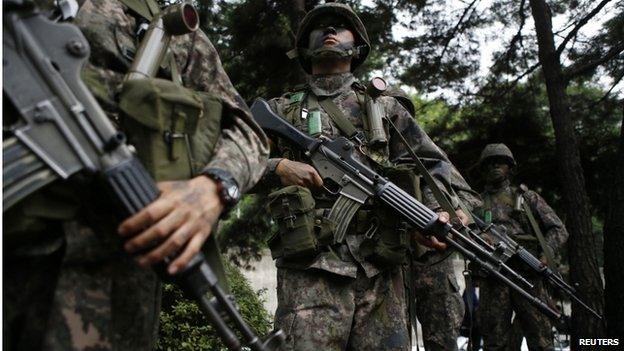
All healthy adult South Korean males must serve about two years in the army
South Korea is agonising over the death of one soldier and a deadly shooting spree by another.
These are incidents allegedly related to a bullying culture in the 640,000-strong, conscript-manned military that guards the country against North Korea.
But bullying in South Korea is not restricted to the armed forces.
Due to the relentless North Korean threat, all healthy adult South Korean males undergo approximately two years (terms vary according to branch of service) of conscription.
It is unpopular. Most consider them wasted years. And every few years, incidents of often deadly abuse are exposed.
In April, a private called Yoon died after being beaten by senior ranks.
He had previously been forced to hold martial arts "horse-riding" stances for hours and had irritant salve rubbed into his genitals.
In June, a sergeant called Im went on a shooting spree, killing five fellow troops - allegedly as revenge for bullying.
The incidents - the April death was only recently uncovered by a civic group - ignited a public outcry.
"Treason"
Since then, Korean media have been pouncing on all stories of military bullying, from abuses of young recruits to sexual abuse allegations.
Top brass is talking tough. President Park Geun-hye has called bullying an "evil practice" and Chief of Staff General Kim Yo-hwan characterised it as "treason".
Gen Kim - who is new to the job; his predecessor resigned in the wake of the bullying scandals - has ordered the establishment of a military human rights commission.
He has ordered military police to investigate the 758 cases of bullying reported to hotlines in August, and threatened to disband units suffering endemic bullying. The army has also said it will incentivise whistleblowers.
Bullying is hardly unique to South Korea's forces.
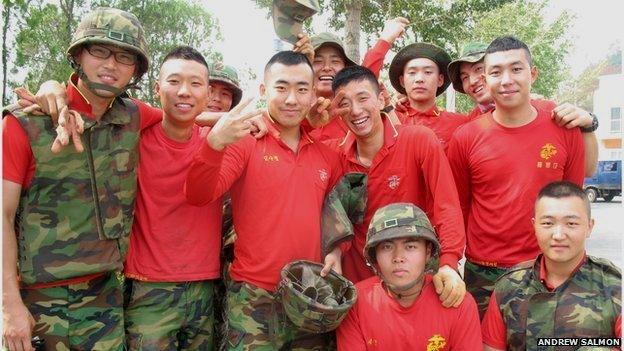
Young South Korean marines advertise their comradeship on the frontline island of Yeongpyong
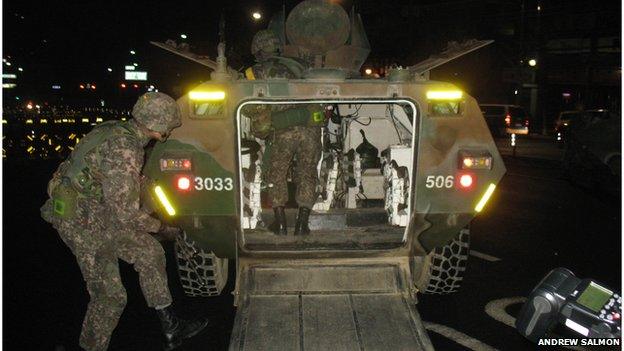
South Korean troops regularly carry out anti-infiltration exercises to prepare for North Korean threats
Hazing was once a common among US troops, many British recruits suffered humiliating "initiation" rituals after joining their units and Russian army bullying ("dedovschina") remains notorious.
And the tougher the unit, the tougher the bullying.
"During my military service, one of my seniors woke me and other guys up, and pushed us up the mountain behind our barracks. He bought an axe, cut down branches as thick as my arm and smashed us," recalled Gavin Lim, a private military contractor and veteran of the elite 707 Battalion, Korea's equivalent to Delta Force or the SAS.
"One stick had a sharp point, and one guy, I think his brain was damaged: he blinked and he started stuttering."
Pecking order
Yet while a combination of machismo and closed, male-dominated society may explain abuses in armed forces worldwide, bullying in South Korea extends beyond the barracks.
The nation modernised under the brutal aegis of Japanese colonialism between 1910 and 1945, then fought a horrific war with North Korean from 1950 to 1953.
After the wars, South Korea underwent accelerated economic development under authoritarian leaders.
The result was a society where ultra competitiveness was inculcated and aggression tolerated.
Chung Ju-yung, the late, legendary founder of the Hyundai Group, was known to hurl ashtrays at executives during rages, and Korean conglomerates were once noted for their militaristic cultures.
Workplace violence has ameliorated in recent years, but endures.
This month, employment portal Saramin announced that 9.7% of respondents to a survey had suffered physical abuse in the workplace including pinching, pushing, slapping and being hit with office supplies, and 62% of abuse came from managers.
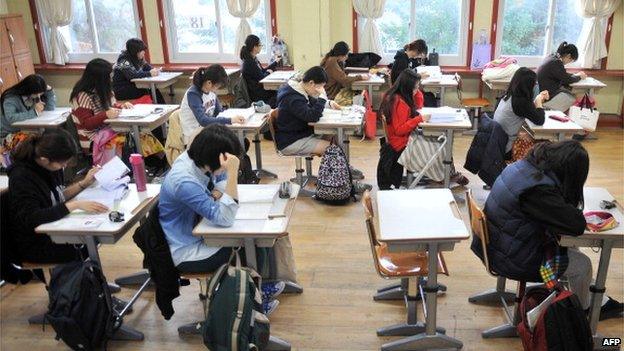
Bullying is said to be endemic in South Korean schools and hotlines have been set up for school children
Intimidation and abuse is learnt early, for bullying is endemic in South Korean schools.
According to the Education Ministry, in April there were 12,203 cases of bullying reported via hotlines set up for school children.
"Even if we are just talking about everyday things, Koreans have to be in a pecking order. In every office and in every social gathering, there is a hierarchy, whether official or unofficial," said Sue Kim, an education reporter with the Chosun Ilbo, Korea's top-selling newspaper.
"In school and the army, everybody is on exactly the same schedule, so hierarchies form."
Successful but stressful society
School bullying ranges from "wanggta" - ostracism, a particularly cruel practice in traditionally communal Korea - to sexual and physical abuse, Kim noted.
Such practices may transfer across to, and be exacerbated in, the army which young men enter soon after school.
"It is believed that all kinds of violence in the army are based on the school violence soldiers experienced… in their middle and high school days," said teacher Choi Tae-hwan in a column in The Korea Times.
Cyber bullying is also widely reported, and the high suicide rate among young Koreans is widely attributed to the pressures that are part and parcel of this successful but stressful society.
Still, special forces veteran Lim believes things are improving - but concedes that the problem is deeply ingrained.
"You cannot imagine how serious it was when I was serving 20 years ago. These days the level of bullying is lower, now there are guidelines to prevent it," he said.
"Government and social leaders have been trying to fix it for years, but it is very difficult to remove this problem."
- Published12 August 2014
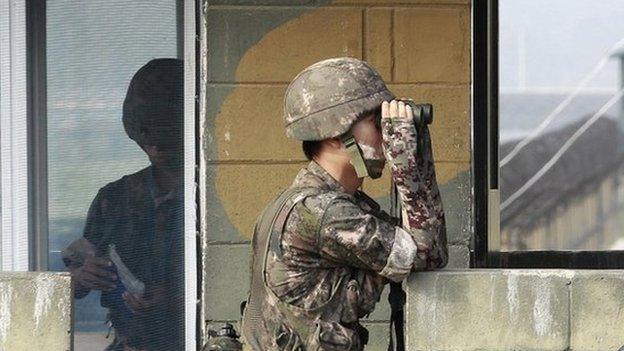
- Published7 August 2014

- Published23 June 2014
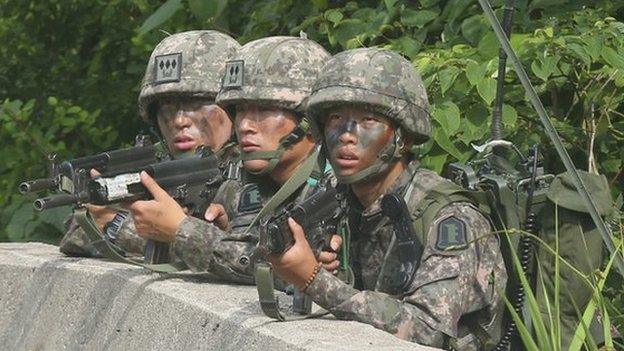
- Published29 July 2014
